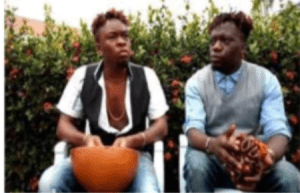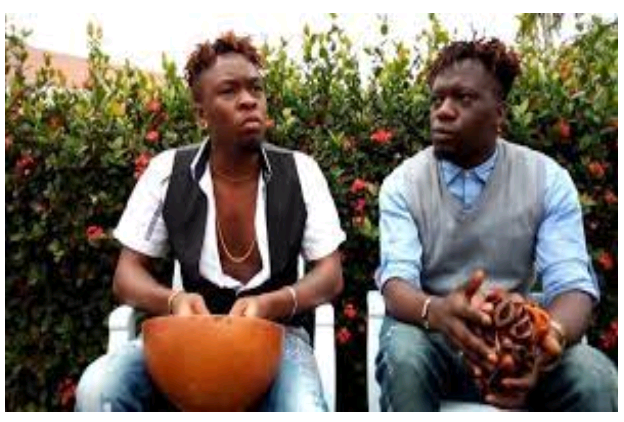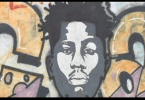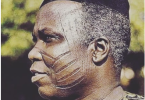The music industry in Nigeria has for long been blessed with genres that have strong cultural infusions: Juju, Fuji, Afrobeat, and Highlife for instance. And these culturally-oriented songs remain popular till the present day. Perhaps because they are highly danceable and entertaining so to speak. Such is the case of the music of fast-rising modern highlife duo known as the Umu Obiligbo. Highlife music is one highly sought-after and evergreen variety of music native to West Africa and Nigeria. It is particularly popular in the South-East and South-South regions of Nigeria.


It is widely known that music in Nigeria has become a medium for social and moral instruction. It has been used to question social ills, or to emphasize the best ideals of our society. It is also used to praise people who have shown exemplary conduct; to exalt tradition; even as a prayer medium. And not surprisingly, highlife music has made itself extremely useful in all these areas of application. To attest to the undying legacy of highlife music, we move to celebrate the story and songs of the Umu Obiligbo brothers of Anambra state. The music pair have taken the blend of characteristic Igbo world view and highlife music to an interesting level. They have received accolades and earned awards in the Nigerian music scene right from 2014 to date.
Also Read- Top 10 richest Nigerian musicians
About Highlife Music
Highlife music that recently acquired the Umu Obiligbo brothers as ambassadors, actually originated in Ghana. That was sometime towards the latter part of the 19th Century. When it first debuted, highlife was a favorite of the very creme-de-la-creme, high networth citizens. These were people who who had money to spend in the clubs and entertainment arenas of colonial Ghana. In such places, the poor folks dared not enter. Hence the name ‘highlife’. The Ghanaians eagerly carried their brand of highlife along with them everywhere they went across the West African landscape. It spread to Nigeria, Gambia, Sierra Leone, Liberia and others.
The unmistakable blend of rhythms in highlife are produced from brass wind instruments – particularly trumpets, saxophones (typical of jazz). Fused with guitars, they became so appealing and easy to swing to – even if you lack the zeal to dance. Proponents of highlife music in Nigeria include Stephen Osita Osadebe, Oliver de Coque, Nico Mbarga, Victor Uwaifo, Bright Chimezie, Tony Grey, Zubi Enebeli, Sonny Okosun, Sunny Neji, Chinendu Okoli (Flavour N’abania). These artistes and scores of others (both past and contemporary) have composed endearing highlife songs which have simply refused to fade away.
Origins: Who are the Umu Obiligbo Brothers?
Ifeanyichukwu Ogbuozor Obiligbo and Chukwuebuka Akunwafor Obiligbo are siblings born, bred and schooled in Nkpor-Agu area of Anambra state. But they hail from Nteje community (of the same state). And no, they are not twins. As of the current year, both brothers are still single. Their birth dates are not known; however their estimated ages (which is not specific) lies somewhere between 30 and 34 years old.
Their father, Chief Akunwafor Ajana Obiligbo was an Igbo highlife musician in Eastern Nigeria. He was born unto Chief Ezigbo Obiligbo, a renown Ekpili musician quite famous in the 1970s. General Yakubu Gowon (the Nigerian Head of State at that time) so much adored Ezigbo Obiligbo’s music. In fact, General Gowon reportedly gifted Ezigbo Obiligbo a Peugeot 504 car after one epic performance – that was sometime around 1973 or 1974. At least four generations of music prowess laid the foundation for Umu Obiligbo’s career many decades later.
Also Read- Top 10 Nathaniel Bassey Songs
Umu Obiligbo: Their Journey into Stardom
However, the duo of Umu Obiligbo did not grow up pampered as such. They knew the streets, and were raised in a middle-class home. They attest to their songs being inspired by their experiences amongst the common folk within the community where they grew up. They listened to the Ogene players of Nkpor-Agu with glee, and later joined them to perform during native festivals. The townsfolk of that time believed they were not serious kids. Nor did they make so much money at the time they started off on their own. The duo played a brand of Egwu Ekpili music which stood out sharply in their first Album ‘Ife Di Mma’. But their eventual collaborations with other afrobeat and highlife music icons of the present day brought them into limelight.
Their first-ever collaboration was with Flavour N’abania in their debut album ‘Awele’.Their move towards a modernized version of Egwu Ekpili music was seen by traditional Igbo music lovers as distasteful at first. But they defended this necessary move as inevitable in a changing world. The brothers subsequently decided to showcase a combination of Highlife and Afrobeat rhythms. Rich in Igbo proverbs, cultural beliefs, admonitions, and advice for their listeners, their music also incorporates native percussion instruments. That includes the Ekwe (hollow drum) and Oja (wooden flute).
Umu Obiligbo: Their Rise to Fame
Umu Obiligbo began their musical journey in 2014 with their debut album ‘Ife Di Mma’ released in February. It was soon followed by a second album titled ‘Udo Ga Di’ in December of the same year. They went ahead to release the album ‘Awele’ in 2018; then ‘Signature (Ife Chukwu Kwulu)’ in 2020. The ‘Signature’ album earned them the Best African Group Award at the Nigerian Musik Magazine Awards (AFRIMMA) in 2020.
The talented duo have also collaborated with other music stars and celebrities like Flavour N’abania, Basketmouth, Phyno, Davido, Humble Smith, Zorro, Victor AD, and Larry Gaaga. Even more, they are talented stage performers. They have developed a penchant for releasing hit songs around December of every year – their latest song ‘Anwuli’ (Joy) released in December 2022 was a song of thanksgiving to God for their safe and successful journey so far.
They are presently signed under the Universal Music Group record label. As at 2023, they are reputed to have an estimated combined worth of at least 400,000 US Dollars (as of 2024).
Top 10 Umu Obiligbo Songs so far
The music duo of Umu Obiligbo have to their credit at least 28 major songs. For a sample, here are the top 10 Umu Obiligbo songs of all time (in no particular order):
- Okwuego
- Zambololo
- Enjoyment
- Ifeoma
- I Pray
- Udo Ga Adi
- Egwu Ebubedike
- Motivation
- Ugbo Amala
- Ogu Ajoka
Here’s 5 More of Umu Obiligbo Songs You Need to Listen To If You are a Fan
- Nkasi Obi
- Fine Bobo
- Amara
- Ife Di Mma
- Olisa Biko Zoba Anyi







